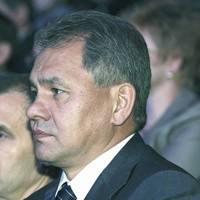The main reason behind Russian President Vladimir Putin’s decision last week to remove Defense Minister Anatoly Serdyukov has become clearer in recent days with the subsequent firing of Chief of Staff Gen. Nikolai Makarov and other senior defense officials and military officers in Russia’s Ministry of Defense. Taken together, the dismissals suggest that the shakeup was not due primarily to sex scandals, corrupt practices or alienation of the officer corps, as has been claimed by various observers. Rather, the purge was the result of a power struggle over who should control the distribution of the $700 billion that Putin pledged in February to spend on new weapons purchases by 2020.
The Russian military-industrial complex, which includes the country’s major defense firms, armed force commanders and their key political supporters inside the government, wants the funds without impediment. Throughout his years in office, however, Serdyukov along with other Defense Ministry officials constantly castigated the defense-industrial sector for producing outdated and overpriced weapons. He also refused to sign defense contracts without guarantees of higher quality and cheaper prices from the defense industry, and declined to buy weapons systems that had not been fully tested or for which no identified military requirement existed.
The Defense Ministry also became sterner in rejecting the massive price increases demanded by Russian industry and at times even turned to foreign manufacturers to buy weapons systems that Russian domestic producers could not deliver in a timely and cost-effective manner. According to Serdyukov, this more demanding approach resulted in the Defense Ministry not buying various armored vehicles, artillery pieces and other costly defense equipment that would have generated hefty profits for the defense industry.

